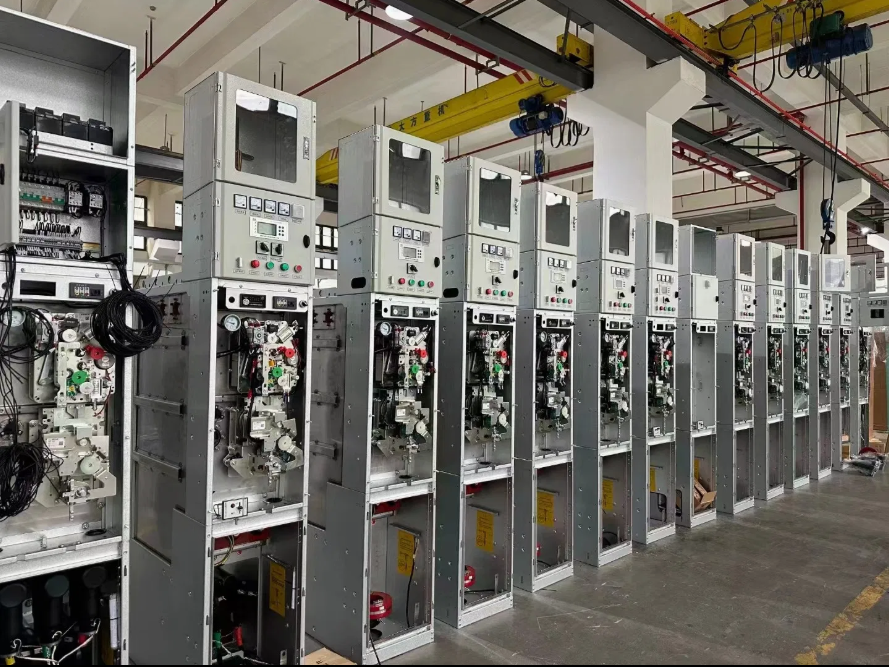How Sustainable Engineering Is Transforming Low-Voltage Switchgear Manufacturing

As the world shifts toward carbon neutrality, energy infrastructure manufacturers are facing stronger expectations around environmental compliance and sustainability. Low-voltage switchgear and controlgear — critical equipment for industrial automation, utilities, buildings, and renewable energy — are no exception.
Today, sustainability goes far beyond energy efficiency. Manufacturers must evaluate how materials, production methods, logistics, usage impact, and end-of-life recovery influence the environment across the full lifecycle of the product.
This growing requirement has led to the creation of IEC TS 63058, a technical specification designed to guide environmental performance evaluation for low-voltage switchgear and controlgear.
✅ Why Sustainability Matters in Switchgear Manufacturing
Switchgear may seem like a small part of a vast industrial system, but its environmental influence includes:
✔ Raw material extraction (metals, plastics, insulation)
✔ Production and assembly processes
✔ Global transportation and logistics
✔ Energy consumption during operation
✔ Waste disposal or recycling at end-of-life
Even if each product individually has a minor environmental footprint, the global installed base makes the cumulative impact substantial.
Governments and industries now require greener products due to:
-
Carbon reduction policies
-
Industrial energy efficiency regulations
-
Restrictions on hazardous substances (e.g., RoHS, REACH)
-
Circular economy requirements
🌱 IEC TS 63058 — The Sustainability Roadmap for Low-Voltage Switchgear
Developed by IEC TC 121, this document establishes clear expectations for:
1️⃣ Environmentally Conscious Design (ECD)
Design determines approximately 80% of a product’s environmental footprint.
IEC TS 63058 defines:
| Key ECD Actions | Benefits |
|---|---|
| Replace harmful materials | Improved compliance & safer disposal |
| Reduce parts & weight | Lower emissions during production & transport |
| Select materials for recyclability | Higher recovery value |
| Improve energy performance | Lower operating emissions |
ECD also ensures sustainability decisions are well-documented and repeatable.
2️⃣ Product Lifecycle Assessment (LCA)
Lifecycle assessment evaluates how each phase contributes to environmental impact, such as:
-
Carbon footprint (kg CO₂-eq.)
-
Resource depletion
-
Toxicity & recyclability
-
Energy consumption during service
IEC TS 63058 provides standard assessment models for realistic application environments.
3️⃣ Material Declarations
Customers and regulators now demand transparent material disclosures.
IEC TS 63058 aligns with IEC 62474 to standardize:
-
Compliance reporting
-
Supply chain traceability
-
Documentation automation
📌 Major focus areas:
🚫 Restricted substances
♻ Critical raw materials
✅ Recyclable vs. hazardous components
4️⃣ End-of-Life (EoL) Guidance
Circular design = business advantage + environmental benefit ✅
IEC TS 63058 recommends:
| Method | Purpose |
|---|---|
| Design for easy disassembly | Faster, safer breakdown of components |
| Clear recycling pathways | Reduced waste & landfill dependency |
| Energy recovery options | Minimize disposal-related emissions |
Manufacturers who improve recyclability gain competitive value in green procurement markets.
✅ Practical Steps Manufacturers Are Taking
Switchgear brands adopting IEC TS 63058 are focusing on:
| Strategy | Environmental Impact |
|---|---|
| Modular design | Extends lifespan & reduces replacement waste |
| Renewable-energy powered factories | Decreases production emissions |
| Recycled / bio-based plastics | Less virgin resource extraction |
| Digital twins & simulations | Optimized material efficiency |
| Take-back / refurbishment programs | Better circularity |
Future-ready companies are advancing faster in competitive procurement bidding.
🔌 Connection to Smart Energy & Green Transformation
Low-voltage switchgear is becoming essential in:
-
Solar power systems
-
Energy storage and microgrids
-
EV charging infrastructure
-
Smart factories and IoT power management
Each of these sectors prefers eco-labeled equipment that meets sustainability reporting standards.
🌍 Benefits for System Integrators & End Users
| Stakeholder | Sustainable Gains |
|---|---|
| Utilities | Improved ESG compliance |
| Industrial customers | Reduced energy waste & maintenance costs |
| Green buildings | Higher certification (LEED, BREEAM) |
| Investors & regulators | Verified carbon footprint reduction |
Sustainability is no longer just ethical — it is economically essential.
- Art
- Causes
- Crafts
- Dance
- Drinks
- Film
- Fitness
- Food
- Jogos
- Gardening
- Health
- Início
- Literature
- Music
- Networking
- Outro
- Party
- Religion
- Shopping
- Sports
- Theater
- Wellness



